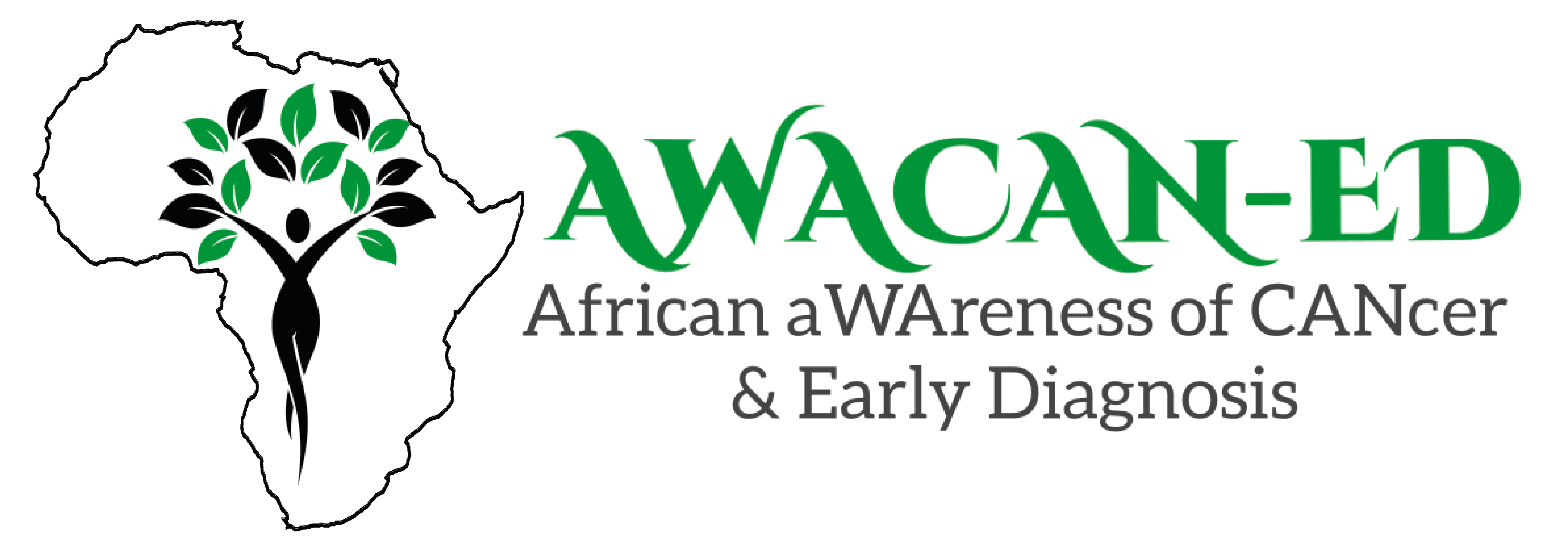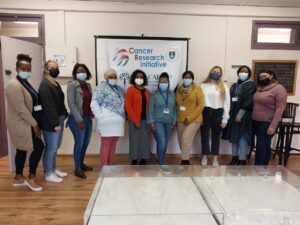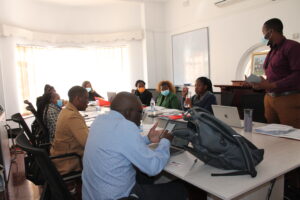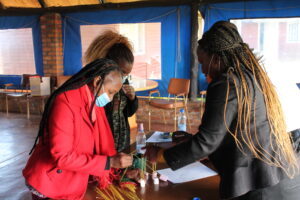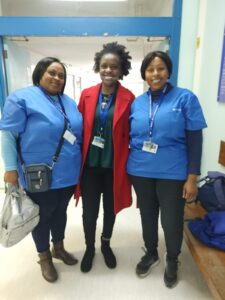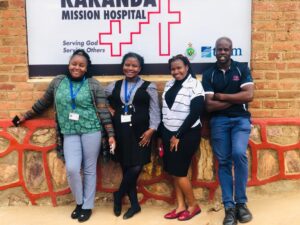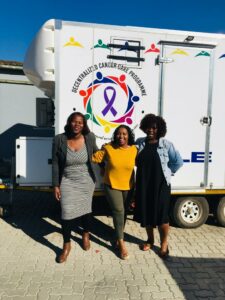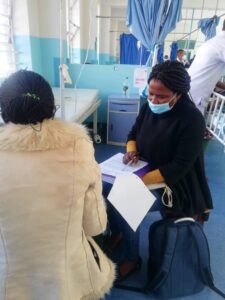Experiences of the AWACAN-ED team during the data collection pilot study
In summer of 2022, the pilot study for the cross-sectional survey component of the AWACAN-ED programme was conducted. The AWACAN-ED field teams from South Africa and Zimbabwe completed their training for the pilot study prior to going into the field. The five-day interactive workshop consisted of topical presentations by trainers, group discussions, assessment exercises, role-playing and plenty of field interviewing practice.
Over the next two weeks, the teams collected data at various health facilities in Western Cape and Eastern Cape, South Africa and Harare and Bulawayo, Zimbabwe. The teams navigated access into facilities, learnt how to recruit patients, got practical experience collecting data and improved our data collection tool.
The team accounts below give in-depth, first-hand accounts of the pilot data collection.
Field Site Coordinator (Cape Town)
‘My journey as Field Site Coordinator started a month before the whole team. This was great for me because it provided me an opportunity to get involved in the behind-the-scenes activities, i.e. having input in the training materials. This was my first time being involved in cancer-based research, my research experience has been mainly in HIV and Mental Health research. I have learnt so much as coordinator, from coordinating fieldwork, learning about cancer to how the health care system functions. Initially, gaining access to facilities was a challenge, when it comes to research project clinical staff members tend to be reluctant in assisting research teams. However, with a bit of patience and cake we have been able to develop good relationships with key staff members.’
Fieldworkers (Cape Town)
‘The moment we got the exciting news that we are selected to be part of the AWACAN-ED study, we were excited because it is our first time working on a cancer research study thinking it will be a study as any other study we’ve worked on. It was more exciting when we had to be part of the training because we got educated on everything about cancer including the different types of cancer that we never knew about.’
‘Overall, as experienced fieldworkers, we expected such challenges in a health facility that not everything goes accordingly but we must stay calm and find ways to deal with challenges. Being part of the AWACAN-ED study is a learning experience that we had to learn more about different cancer and the emotions that cancer patients have to live with, and it is also a wake-up call for us to take note of signs and symptoms that leads to different types of cancer for early diagnoses.’
Field Coordinator (Bulawayo)
‘A lot of practice and role plays were conducted during the training and I became quite sure that we were ready for the field. However, when the time for the pilot came and we had to meet real patients, in real hospital settings; it was not easy. Some of the participants were extremely not well with advanced cancer. This was emotionally draining, however, at least the end of day check-ins and team debriefs helped in relieving some of the stress.’
Field worker (Harare)
‘For all these years, I thought being diagnosed of cancer meant a death penalty for both the patient and the caregivers. On the contrary, it is not what I got when I was engaged in the AWACAN-ED study. I have come to realise that cancer outcomes can be improved by early detection and timely diagnosis. The piloting left me with the feelings that AWACAN-ED study is a project that is truly relevant in our times since its passionate about reducing cancer related morbidity and mortality through advancing earlier diagnoses of cancer.’
Field worker (Harare)
‘The AWACAN-ED pilot study was a unique research and learning experience for me as it yielded valuable insights about late cancer presentation in Zimbabwe. The pilot was very interesting as I got “real-world” experience interacting with cancer patients. It was a little challenging at first as interacting with patients with advanced cancer was emotionally distressing and the hospital environment was not always conducive for interviewing very sick patients.’
Field worker (Mthatha)
‘I once worked on the similar study, the difference part here is working on newly diagnosed patients, especially in a case whereby the diagnosis was done on same day. Attending a participant that has just receive the results and is still emotional is a bit challenging, but working as a team has been very helpful in dealing with those challenges.’
